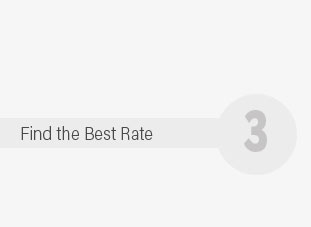 |
 |
 |
|---|
 |
 |
 |
 |
|---|
 |
 |
 |
 |
 |
 |
|---|

Understanding Full Coverage Car Insurance Quotes: A Comprehensive GuideIn the ever-evolving world of automobile insurance, navigating the myriad options available can be daunting. Among these options, full coverage car insurance often emerges as a popular choice for many drivers. But what exactly does it entail, and how do you secure a quote that suits your needs? This article seeks to demystify the concept of full coverage car insurance quotes, offering insights into their components and tips for obtaining them. At its core, full coverage car insurance is a term that refers to a combination of insurance policies designed to provide comprehensive protection for drivers and their vehicles. While the term might suggest all-encompassing coverage, it's essential to understand that it typically comprises three main elements: liability insurance, collision coverage, and comprehensive coverage.
Now, when it comes to obtaining a full coverage car insurance quote, there are several factors to consider. First and foremost, your personal driving history plays a significant role. Insurers will evaluate your past incidents, such as accidents or traffic violations, to assess risk. Additionally, the make and model of your car, its age, and even your geographical location can influence the quote you receive. Insurance companies often weigh these variables differently, which is why it’s wise to shop around and compare quotes from multiple providers. Another factor to consider is your deductible, which is the amount you agree to pay out of pocket before your insurance coverage kicks in. Generally, a higher deductible results in lower premiums, but it also means more financial responsibility in the event of a claim. Balancing these elements requires careful thought about your financial situation and how much risk you're willing to shoulder. While many people assume that full coverage equates to peace of mind, it's crucial to read the fine print. Policies can vary significantly between insurers, so it's beneficial to ask questions and clarify any ambiguities. For instance, some policies may exclude certain types of damage, or impose limits on payouts. Understanding these nuances can prevent unpleasant surprises down the road. In conclusion, full coverage car insurance quotes provide a pathway to comprehensive protection, but obtaining the right coverage at an affordable price requires diligence and informed decision-making. By understanding the components of full coverage, assessing your personal circumstances, and comparing quotes, you can secure a policy that offers both security and value. Remember, the goal is not just to find the cheapest option, but one that best aligns with your needs and expectations. https://www.libertymutual.com/vehicle/auto-insurance
Liability coverages. These required coverages are set by the state you live in. - Vehicle coverages. Also known as Comprehensive and Collision Coverage, these ... https://www.erieinsurance.com/auto-insurance
When you accidentally lock your keys in your car, we'll cover the locksmith costs up to $75. It's part of our comprehensive coverage. ERIE Auto ... https://www.thezebra.com/auto-insurance/coverage/best-full-coverage-auto-insurance/
The cheapest companies for full coverage car insurance ; travelers full coverage. Travelers $112 per month ; usaa full coverage. USAA $114 per month.
|
|---|